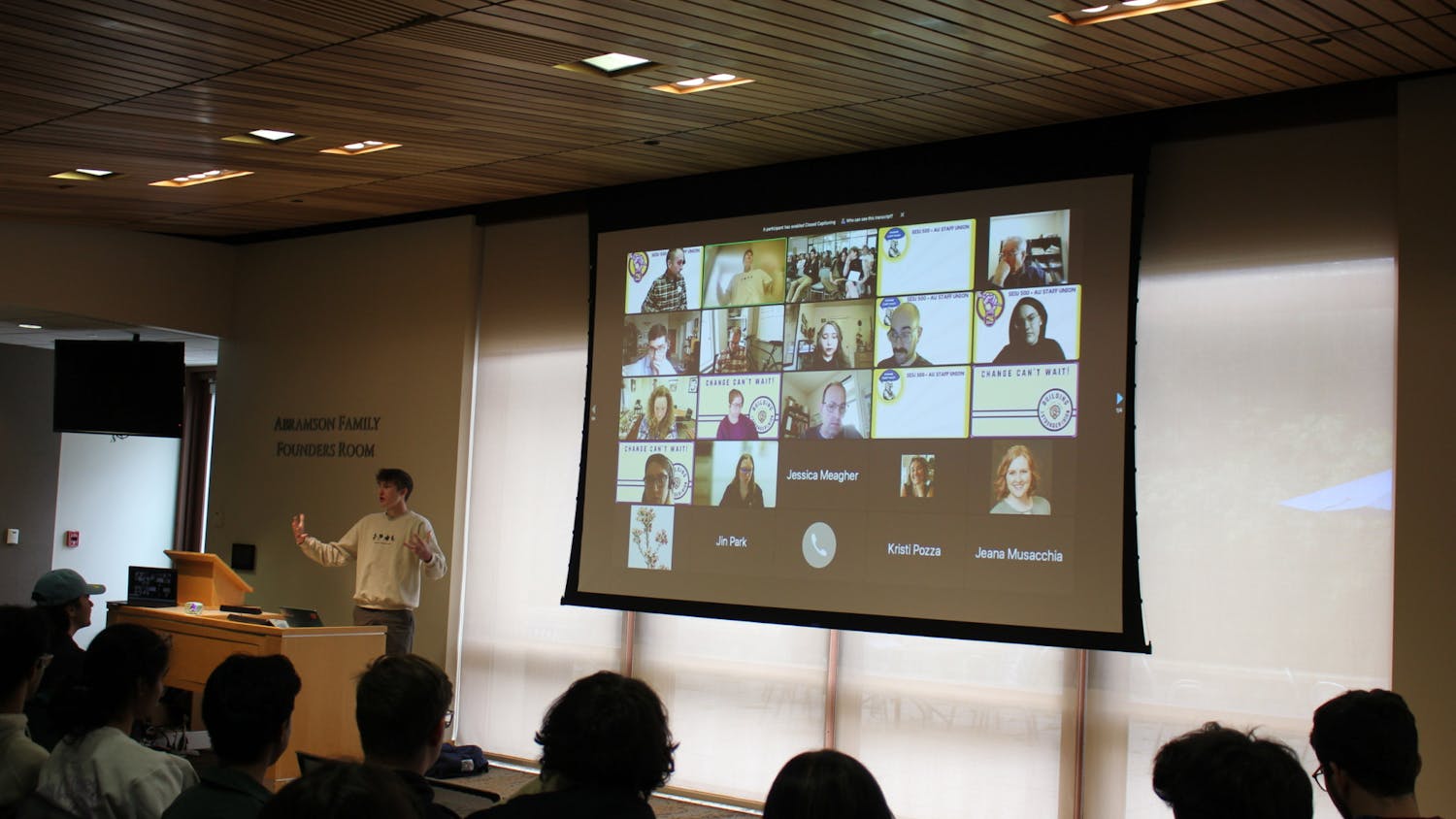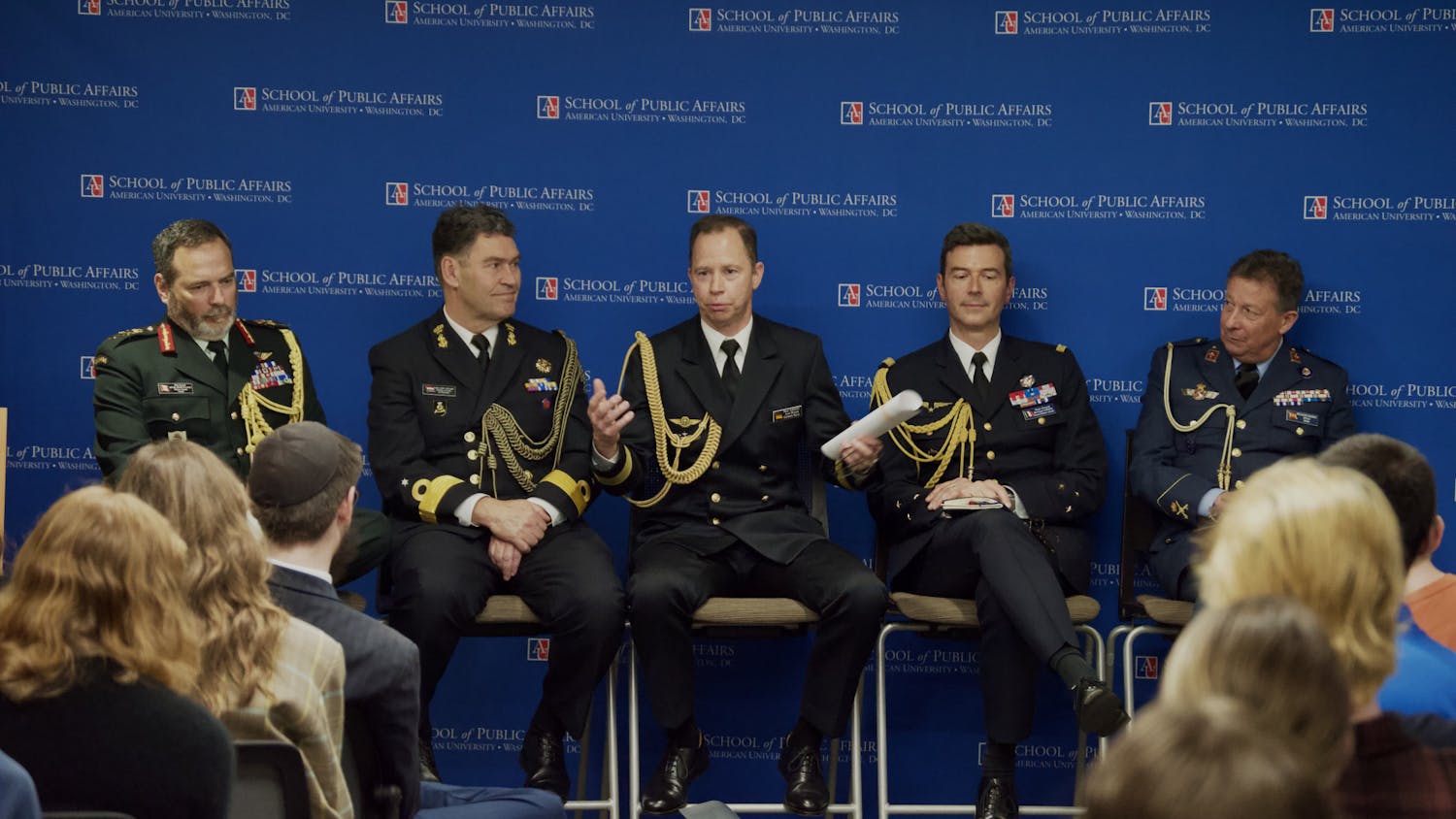Administrators said a tuition freeze would have a negative impact on students at a University Budget Forum on Feb. 23.
Chief Financial Officer, Vice President and Treasurer Douglas Kudravetz said that 82 percent of the University’s revenue comes from tuition and fees, a proportion which has been consistent over time.
Some students, including the Education Not Debt Coalition, have advocated and protested for a tuition freeze, the Eagle previously reported. However, Kudravetz said that if there was a tuition freeze, the University would face many negative consequences.
“We would stop progress on some of our strategic plan initiatives, we’d have to,” Kudravetz said. “We would have real personnel and program cuts...We’d have salary freezes as well. All of this would impact our quality of services. There would be little or no increase to financial aid and we wouldn’t be able to recruit more high quality faculty. Of course, we’d have some challenges to faculty and staff morale as well, with the lay-offs and no salary increases.”
Students filled the 175 seats in the Butler boardroom to participate in the forum with the University Budget Committee, including Provost Scott Bass and other administrators. President Neil Kerwin was not present.
School administrators made a presentation about the budget process, financial aid and student debt before taking questions from students.
“We hope to answer your questions so that you’re fully informed as possible about the things that matter to you as students at American University,” Bass said at the beginning of the meeting.
Kudravetz gave an overview of the budget process and some of the concerns that the budget committee and administration considers, including the fact that for the past four years, the University’s budget has been greater than its revenues, Kudravetz said.
“We now need to bring that budget back in line and our enrollment projections were over-aggressive and now we need to pull that back,” Kudravetz said. “So, that’s the challenge that the budget committee has had these past several months.”
Vice Provost for Undergraduate Enrollment Sharon Alston added that 29 percent of total revenue from tuition is given to the financial aid office to support undergraduate and graduate students.
“What we have done in the financial aid office is we have very strategically been trying to move more and more money toward the need-based side of the formula rather than the merit side,” Alston said.
In 2009, 34 percent of financial aid given by the University was need-based, whereas for the two most recent classes to enter the University, 71 percent was need-based, Alston said.
Alston also said that for about 85 percent of students, there is no substantial change in their financial aid package while they are at the University. For the other 15 percent, the change can be either an increase or a decrease.
Possible reasons for a change in financial aid are a change in financial circumstances, no longer having another sibling in college or failing to meet satisfactory academic progress, Alston said. When there is a change in financial aid, there is an appeals process which students can use.
“You can always appeal any change in your financial aid package,” Alston said. “Last year our office received over 1,200 appeals and approved about half of them.”
Vice President for Communication Terry Flannery also discussed the steps the University is taking to address student debt. In 2009, AU was above the national average for student debt. The average debt for AU graduates was $40,966, while the national average was $24,000.
The University has been working to reduce student debt and expects that for the class of 2014, average student debt fell below the national average for the first time since the data has been being tracked, Flannery said.
“We’ve been working really hard to get from a place that we thought was unsustainable and not healthy for students or for the institution, to a place that is at least in the national context in a better place,” Flannery said.
A dozen students and one recent graduate spoke and asked questions on a variety of issues including resident assistant stipends, support for non-billable costs like books, salary increases for staff and housing and dining costs.
“We know that every one percent increase in tuition is an extra 44 hours of work at minimum wage per student per year,” Student Government President Sophia Wirth said. “So we’re looking at a 2.5 to 4.5 increase, that’s an extra 110 to 198 hours at minimum wage per year. So my question is: how does the administration expect students to balance their academic obligations with the possibility of two to five weeks of work full-time at minimum wage to pay for school?”
Flannery said that students and their families need to weigh what debt is reasonable to take on, versus the amount a student can work to offset the debt. The financial aid office can help students make these decisions, Flannery said.
“The financial aid office in particular [can help] students and families...to think about what’s reasonable to take on as debt now...that you will be able to pay back; versus what you need to do to work that will eliminate some of that, that could be done now without harming your academic performance or all the other things you’re trying to balance,” Flannery said. “It’s all a balance.”
The Board of Trustees will consider and vote on the budget March 5 and 6.
“These are difficult choices that we face in terms of balancing this and ensuring that your degree is more valuable when you graduate,” Bass said.




